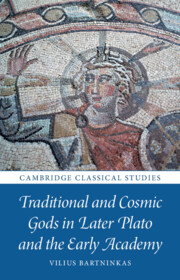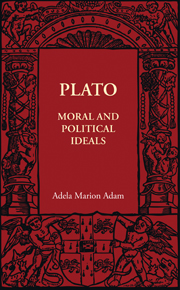Traditional and Cosmic Gods in Later Plato and the Early Academy
This book sheds new light on Plato's cosmology in relation to Greek religion by examining the contested distinction between the traditional and cosmic gods. A close reading of the later dialogues shows that the two families of gods are routinely deployed to organise and structure Plato's accounts of the origins of the universe and of humanity and its social institutions, and to illuminate the moral and political ideals of philosophical utopias. Vilius Bartninkas argues that the presence of the two kinds of gods creates a dynamic, yet productive, tension in Plato's thinking which is unmistakable and which is not resolved until the works of his students. Thus the book closes by exploring how the cosmological and religious ideas of Plato's later dialogues resurfaced in the Early Academy and how the debates initiated there ultimately led to the collapse of this theological distinction.
- Reveals Plato's understanding of gods, philosophical cosmology and Greek religion
- Provides a close examination of Plato's later dialogues, offering a firmer basis for settling some of the most contested issues in his later philosophy
- Explores the reception of later Plato in the Early Academy, demonstrating the enduring historical significance of the theological questions he posed
Product details
March 2023Adobe eBook Reader
9781009322607
0 pages
This ISBN is for an eBook version which is distributed on our behalf by a third party.
Table of Contents
- Introduction
- 1. Plato's Theogony
- 2. Plato's Anthropogony and Politogony
- 3. Plato on Divinity and Morality
- 4. Cosmic Religion in the Early Academy
- Conclusions.



